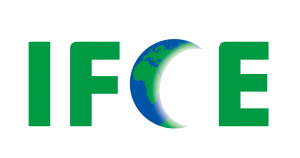"Wild Species Trade and Legal Response" Expert Dialogue
Release date:2020-07-26
John·Scanlon:Bold action,Avoid future outbreaks of wildlife-related epidemics

African Park Envoy,Special Advisor for Elephant Conservation Initiative,Chairman of the Global Initiative to End Wildlife Crime,Secretary-General of the Convention on International Trade in Endangered Species of Wild Fauna and Flora (2010-2018)
Sincere thanks to Secretary-General Zhou Jinfeng for organizing this international dialogue conference、Thanks to all colleagues and other staff of China Biodiversity Conservation and Green Development Foundation,Promote the smooth development of this online meeting。Sorry for my appearance and voice (if tired),But Sydney is close to midnight!
The new coronavirus pneumonia epidemic reminds us of the interconnection of all things in nature in a devastating way,Especially economic、surroundings、Humanity、The relationship between wildlife health and welfare。however,Our international law、Programs and funds have not yet reflected this reality,At the national level。
The most commonly used explanation for the novel coronavirus pneumonia epidemic is,The virus spreads from bats to humans in Wuhan seafood market,Maybe through another intermediate animal such as pangolin。Although there is no definite conclusion about the epidemic,But as we all know,There is a link between wildlife and previous epidemics,In some cases the virus is more likely to spread from animals to humans。
The danger is real,The risk is also high。The risks to public health from zoonotic diseases related to wild animals may originate from unregulated、Regulated and illegal wildlife trade。We need to ask relevant experts to assess the wildlife market that poses health risks、Trade and consumption,So as to focus on where it is most needed,Avoid any unexpected consequences。
The current international system for regulating wildlife trade and combating wildlife crimes is not sufficient to regulate wildlife trade that poses a threat to public health、Market and consumption,Not enough to end wildlife crime。
Our system cannot prevent the next pandemic from breaking out。In fact,It may also increase our potential exposure to zoonotic diseases。These diseases can be transmitted from wild animals to humans。
These are challenging、Global、The problem of relevance。We need to make profound changes,Need to work together to fully solve these problems。Someone asked me,Is this possible in the current situation。My answer is always yes,As long as we continue to focus on common challenges,And how to work together to solve these challenges。
I have been inspired by the experience of the international community working together to solve global challenges:For example, species that migrated successively in the 1970s、Endangered species trade、Wetlands and World Heritage,Biodiversity、Climate change and desertification,To formulate a new convention on combating corruption and transnational organized crime at the beginning of the 21st century。
2010When joining the Secretariat of the Convention on International Trade in Endangered Species of Wild Fauna and Flora (CITES),We were facing a surge in illegal wildlife trade,Especially when it comes to African ivory。The only way to stop illegal trade is through the country of origin、Cooperation between transit countries and destination countries,And I am honored to work with countries involved in illegal supply chains,Achieve the goal of combating illegal wildlife crime,Including cooperation with China。
China destroyed confiscated ivory in Dongguan in 2014, held a workshop on demand-side strategies in Hangzhou 2015, closed its first ivory markets in Beijing in 2017 and enhanced its overall enforcement effort.
China destroyed confiscated ivory in Dongguan in 2014,Held the "International Symposium on Containing the Demand for Illegal Ivory" in Hangzhou in 2015,2017Announced the closure of the ivory market in Beijing,And comprehensively strengthen law enforcement。
Although there is still work to be done,But together we reversed the surge in elephant poaching and ivory smuggling。This indicates,When we work together to solve common challenges,Can be done。We can do it again。
Wildlife trade
About wildlife trade,CITES is a global legal tool to regulate international trade,Its decision is based on unanimously adopted trade and biological standards。In the decision-making process,CITES did not consider the risks to public health or animal health when listing a species or approving trade transactions。E.g,Pangolins are included in the CITES appendix,But chrysanthemum bats and many other bat species do not。
CITES trade control only solves the problem of over-utilization,That is, whether trade transactions will threaten the survival of the species。Back in the 1970s,CITES' attention to over-utilization is reasonable,But in the era after the new crown epidemic,Is unsustainable。Nowadays,We need to adopt a "same healthy" approach to the wildlife trade。
Currently,Some countries including China are adopting stricter domestic measures,Prohibit trade in certain wildlife、Market and consumption,This is a positive preventive measure。however,To ensure effective,Such measures will need to be implemented and applied in all countries,Prevent future epidemic outbreaks。
To achieve this goal,We need to be public、Transparent、Collaborate under a science-based legal framework。The framework includes health and hygiene standards in the decision-making process。Whether it’s CITES or other conventions,None of this yet。
I think there are three options at the international level to build public and animal health under wildlife trade laws。We can:
-Revise CITES
-Within the framework of the Convention on Biological Diversity,Propose a new agreement
-Within the framework of the World Health Organization,Propose a new agreement
Zhou Jinfeng talks about the practice of social organizations to promote wildlife protection

Policy advocacy
In order to change the protection status of endangered species from the policy,China Green Development Council has long called for and required relevant departments to revise the "Pharmacopeia of the People's Republic of China",Remove Chinese pangolin from the pharmacopoeia。2016The 17th Conference of the Parties to the Convention on International Trade in Endangered Species of Wild Fauna and Flora (CITES CoP17) approved the proposal to upgrade all 8 species of pangolin from CITES Appendix II to Appendix I,Marks that this species will be protected at the highest level。In contrast, pangolins are only classified as national secondary protected animals in my country。Since then,China Green Hair Association calls for the protection of pangolins to be upgraded to the national first-level key protected wildlife,Carry out key protection。At the beginning of June this year,Pangolins are officially promoted to national first-class protected animals,It is no longer included in the 2020 edition of "Chinese Pharmacopoeia" (1),It marks that China Green Development Council has made significant progress in policy promotion。
2016year,China Green Development Council recommends the formulation of the Biodiversity Protection Law,Proposals for the two sessions are formed and submitted by representatives of the two sessions,To improve the system of laws, regulations and standards for biodiversity protection,Coordinate and promote biosafety、Management of access and benefit sharing of biological genetic resources,Improve the biodiversity supervision system,Clarify the main responsibility and supervision responsibility,Improve supervision。Moreover,During this year's new crown epidemic,I will actively advise,Put forward a series of recommendations to strengthen the protection of wild species and the supervision of wildlife trade。
Public interest litigation
Information disclosure is the basis for strengthening the protection of endangered and rare wild species。2017End of the year,All 32 pangolins rescued by Guangxi Wildlife Rescue Center died。To this,China Green Hair Association asks to disclose the cause of death of pangolin,And apply to Guangxi Forestry for pangolin research materials (feces、blood、Scales etc.)。After multiple applications to the Guangxi Forestry Department to disclose the pangolin flow and other information failed,China Green Development Society sued Guangxi Forestry Department for "non-fulfilment of the statutory duty of government information disclosure" at the end of December 2018,And sued the National Forestry and Grass Administration for serious violations of the law during the administrative review period;2019year,Sued Hebei Forestry and Grassland Bureau for illegally approving 1,650 kg of African pangolin scales。
Awareness raising
Youth is the main force in biodiversity conservation。In order to increase the participation of the young generation of wild species protection and green development actions,The China Green Development Council established the Undergraduate Environmental Protection Work Committee and the Children’s Working Group (referred to as "Green University"、"Little Green"),United University Environmental Protection Association,Support the development of outstanding environmental protection projects,Regularly conduct science lectures and outdoor inspection activities in primary and secondary schools,Promote the concept of biodiversity conservation and green development。Hosted environmental protection knowledge contest for college students since 2016,A total of nearly 4 million college students participated,Co-organized by more than 1,000 colleges and universities,Vigorously promote the popularization and deepening of environmental protection concepts。
Public participation
Public participation is to strengthen biodiversity protection、Effective means to combat anti-poaching。2016year,China Green Development Association Protected Land System (CCAfa) was formally established。up to now,160 protected areas have been established across the country,Protection objects include animals、plant、Cultural heritage、Natural landscape etc.,Effectively mobilize grassroots volunteers and local communities to participate in the fight against illegal poaching。
Investigation and supervision
Volunteers from the China Green Development Council investigated illegal pangolin trade in Nanning, Guangxi in February 2017,And promptly report to the local forest police and provide clues,Will sell、Investigation into the detention of two persons transporting pangolins。During the new crown epidemic,Volunteers from China Green Development Council closed down Langfang, Hebei through reporting、Cangzhou, Hebei、Several illegal bird markets in Harbin, Heilongjiang,Collaborate to clean up illegal trafficking in wild birds。Earlier this year,China Green Development Council and a number of environmental organizations launched the "E-commerce No Wild" initiative,By reporting the sale of wild animals and their products on the e-commerce platform that are prohibited by the state from trading,Communicate and advocate with the platform,Has effectively contributed to pangolin、Big gecko、Raptor、Illegal products of wild Tianshan snow lotus and other national key protected wild animals and plants are removed from the shelves,Reduce public health risks and biosafety risks。
Ambulance and release
As a national first-level society dedicated to biodiversity conservation and green development,China Green Hair Association participated in the rescue work of four pangolins confiscated by Guangdong Customs in 2019。June this year,Rescued and released pangolins "Linke" and "Lijin" in Chun'an County and Lishui City, Zhejiang Province.。Protect wildlife,We are always on the front line。


